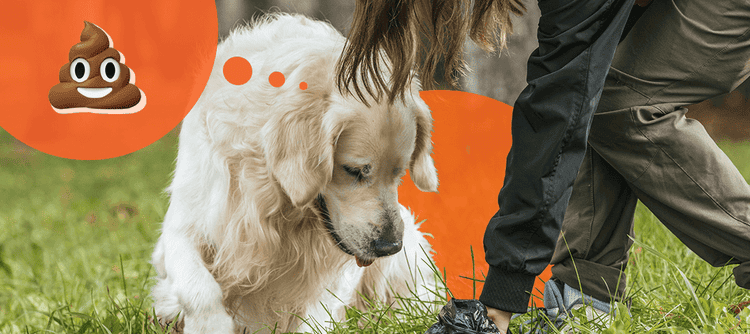Some worms can pose a risk to you, too.
Most of us deworm our pets to save them from discomfort — but it’s also important to reduce the amount of eggs these parasites shed in soil or dirt. When eggs are present in the environment, they can reinfect our pets — and sometimes even us. Keep reading to learn more about the parasites you and your pet could catch.
Can Humans Get Worms from Dogs?
Yes, humans can get worms from dogs. Here we cover roundworms, tapeworms, hookworms and whipworms in dogs, all of which have a varying risk to dogs and humans. Knowing more about these types of worms will help you protect your pet and your family.
Can Humans Get Worms from Cats?
Yes, like worms found in dogs, humans can get worms from cats. Here we’ll also cover roundworms, tapeworms, hookworms and whipworms in cats which, just like these parasites in dogs, have varying risk to both cats and humans.
Let’s take a look at how the different types of worms in dogs and cats can infect humans.
How Can Humans Get Roundworms from Dogs? What about Cats?
Humans can pick up roundworms from dogs and cats in a variety of places, so it’s important to know where they are most prevalent and to follow up with good hygiene practices.
Here are a few places you could pick these pesky parasites up.
Puppies and Kittens
All puppies and kittens are considered infected with roundworms. Puppies can actually be born with them, and both puppies and kittens can become infected by drinking their mother's milk.
When infected, pets can shed thousands upon thousands of microscopic roundworm eggs in their feces, which we can unknowingly ingest without realizing it. This is why it’s so important to promptly pick up and discard your pet’s feces, washing your hands thoroughly afterward.
Pet Waste
Roundworms can cause disease in humans if we unknowingly eat the microscopic eggs that infected cats and dogs shed in their feces. If stools are not picked up by owners, any parasite eggs present will disperse in grass and soil as the stool decays. Always use a bag to collect your pet’s feces, use gloves when cleaning the litterbox, and keep your garden free of dog waste.
Soil
Roundworm eggs can survive in soil for years, and people can come in contact with them by eating improperly washed food, such as salad greens or root vegetables. Young children are at risk of infection if they play outside in the dirt and don’t wash their hands afterward. Roundworm eggs in the soil can occasionally stick to your pet’s fur, especially if your dog or cat loves to dig — just one good reason to always bathe your pet after a trip to the dog park or hiking.
How Can Humans Get Tapeworms from Cats? What about Dogs?
Tapeworms are long, segmented worms can that live in the intestine — small segments can break off and pass in your pet’s feces. These segments, which can sometimes be seen moving, are actually packets of tapeworm eggs. If your pet has tapeworms, you may see tiny white segments that look like grains of rice slowly moving around their waste or stuck to their back end.
Dogs and cats can become infected with tapeworms by swallowing infected fleas or by hunting rodents and rabbits. This can lead to an itchy bottom, causing your pet to scoot along the ground in an attempt to relieve the itch. Symptoms of a tapeworm infection can also include weight loss and GI upset, though animals often will not show any symptoms at all.
Humans can get tapeworms from their pets in a few ways.
Ingesting Tapeworm Eggs
Humans can become infected with one type of tapeworm, called Echinococcus, if they unknowingly ingest eggs that have contaminated an area through a dog's feces.
Ingesting Fleas
It’s also possible for tapeworms to be transmitted directly from pets to humans; we can become infected with the flea tapeworm if we eat an infected flea by accident, often through playing or sleeping with our pet.
How Can Humans Get Hookworms from Dogs? What about Cats?
Pets can pick up hookworms, which are thin, short worms with sharp mouths that hook into the lining of the intestine and feed off blood, by eating the small, worm-like infective stages found in the soil. They can also become infected from eating small mammals. Symptoms of hookworms aren’t common in adult cats and dogs, but can be more serious in young dogs and cats, and include diarrhea, lethargy and anemia.
Here’s how you could come in contact with hookworms.
Contact with Contaminated Soil
Hookworms can also affect people. If we walk across a contaminated area in bare feet, the microscopic, infective worm stages can burrow into our skin and cause irritation and itching. Wear shoes whenever walking on damp sand or soil to reduce the risk of a hookworm infection.
Can Humans Get Whipworms from Dogs? What about Cats?
Dogs may ingest whipworm eggs if they eat grass, soil or pet stools, or if they spend time in a contaminated environment. Because whipworm eggs can survive for many years, infection in dogs is common. Symptoms of whipworms in dogs can include dehydration, diarrhea, bloody stools, weight loss and recurring weakness.
Whipworms in cats in the United States is rare compared to more tropical areas, but the number of cases is rising. Cats can ingest whipworm eggs if they come into contact with contaminated food, water or toys, or through self-grooming habits or using a shared litterbox. Cats may not exhibit any symptoms. In severe cases symptoms can include dehydration, bloody diarrhea, weight loss and malaise.
Transmission of whipworms from dogs to humans is very rare — the Companion Animal Parasite Council currently does not consider whipworms to be a zoonotic parasite. A cat with whipworms also does not put a family at risk. Treatment for the pet, however, is important.
Worm Treatment for Cats and Worm Treatment for Dogs
Pet owners can choose from a range of deworming products for their dog or cat, including spot-on treatments and tablets. What is deworming? Deworming is the process of killing the parasite inside your pet by using deworming products. The dead parasites then pass with your pet’s stool.
Deworming your pet helps protect them from further damage and discomfort caused by worms. Your vet can help you find the right product for your pet and also set up a regular deworming schedule to help protect them in the future.




